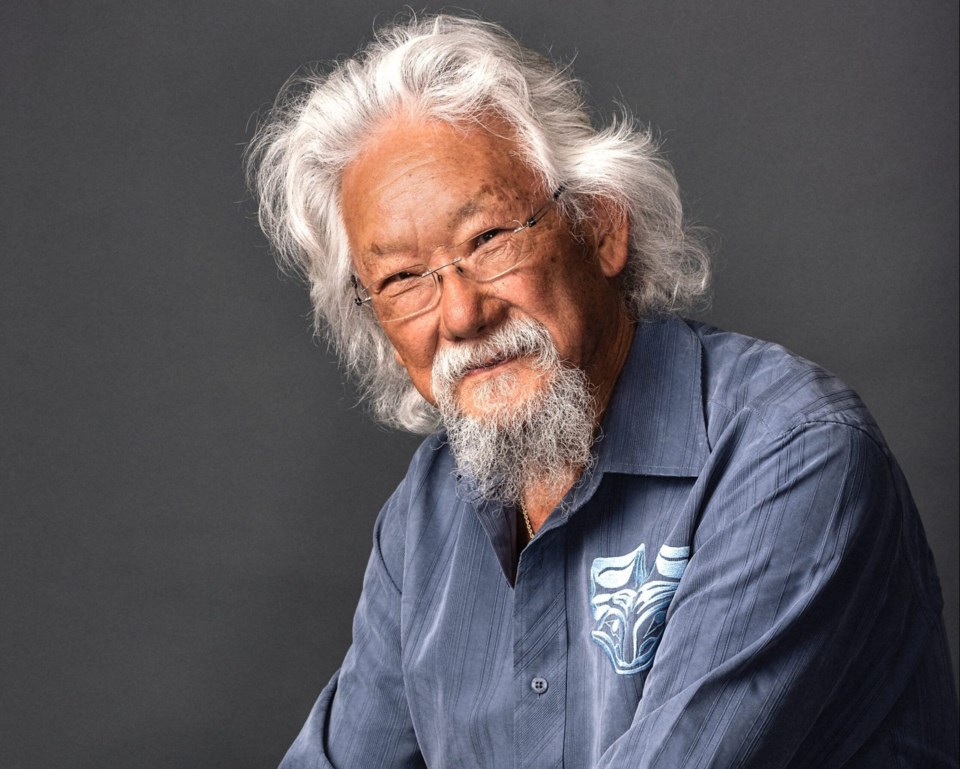Much of the focus in trying to address climate breakdown is rightly on reducing emissions from burning gas, oil and coal. But an equally critical part of the equation is halting and reversing rampant destruction of the natural world.
Whether or not you believe our planet and its biosphere operates like a living organism — “Gaia,” as the late scientist James Lovelock called it — there’s no denying it constitutes a harmoniously balanced system, with natural cycles that have evolved to support human and other life forms.
From the hydrologic, or water cycle (whereby water cartwheels around the biosphere through evaporation, photosynthesis and precipitation) to the carbon cycle (in which carbon repeatedly moves from the atmosphere into Earth’s organisms and then back into the atmosphere), these intricately interconnected processes maintain an equilibrium that keeps temperatures and geological forces relatively stable and facilitates our existence.
When one cycle is thrown out of balance, it affects all the others. Burning gas, oil and coal releases carbon that has been absorbed through solar energy and compressed and stored over millennia. This increases atmospheric carbon levels, which creates a heat-trapping blanket around Earth, causing the global average temperature to rise rapidly. This in turn affects systems such as the hydrologic cycle, creating increased precipitation and flooding in some areas and drought in others.
Carbon is also stored in trees and other plants, and in oceans and wetlands. When forests and other green spaces are destroyed or altered, it affects the carbon and other cycles — as well as the myriad species that rely on these habitats.
It’s all interconnected.
“There is a double movement humanity must make,” said Susana Muhamad, president of the United Nations COP16 Biodiversity summit in Cali, Colombia, to be held in October. “The first one is to decarbonize and have a just energy transition. The other side of the coin is to restore nature and allow nature to take again its power over planet Earth so that we can really stabilize the climate.”
Delegates to the 2022 COP15 summit in Montreal agreed to work toward halting biodiversity loss by protecting 30 per cent of the world's land, water and marine areas by 2030.
A Guardian article reports that the activities of a still-growing human population of more than eight billion has caused insect numbers to plummet, oceans to acidify and fill with plastic pollution and resources to rapidly become depleted. Animals and plants continue to go extinct at an alarming rate.
Scientists have been warning for years that we’re approaching a sixth mass extinction, representing the most significant loss of life since dinosaurs were wiped out.
In simple terms, resolving the climate crisis requires phasing out fossil fuels and cutting emissions. Addressing the biodiversity crisis involves protecting remaining natural areas and restoring those our activities have damaged or destroyed.
But achieving those outcomes requires an even greater shift: a shift in consciousness to facilitate new ways of thinking about economics and human wellbeing.
We can’t get out of the mess we’ve created using an outdated system based on endless growth and consumption — a system that prioritizes profit and measures progress by increases in gross domestic product, or GDP. We need ways to ensure people’s needs are met without destroying the natural systems that make life, good health and wellbeing possible.
It’s a dilemma because, in some respects, capitalism promotes innovation and technological advances — which are needed to resolve some of the most immediate problems. So, just as a transition from fossil fuel economies to more conservation-oriented ones using renewable energy is necessary, so too is a transition from profit-driven consumer capitalism to more benign forms and eventually to more enlightened systems altogether.
We need to use every available tool to halt and reverse the damage we’re wreaking on our planet and ourselves, but we must also stop placing humans at the centre of existence. We are part of nature and what we do to it we do to ourselves.
Many Indigenous Peoples have long understood this, but the current mainstream ideology of domination and exploitation has run roughshod over the kinds of knowledge that come from living in place and observing nature’s interconnectedness.
We need to shift to a society based on respect, responsibility and reciprocity.
David Suzuki is a scientist, broadcaster, author and co-founder of the David Suzuki Foundation. Written with David Suzuki Foundation Senior Writer and Editor Ian Hanington.
Learn more at davidsuzuki.org.




